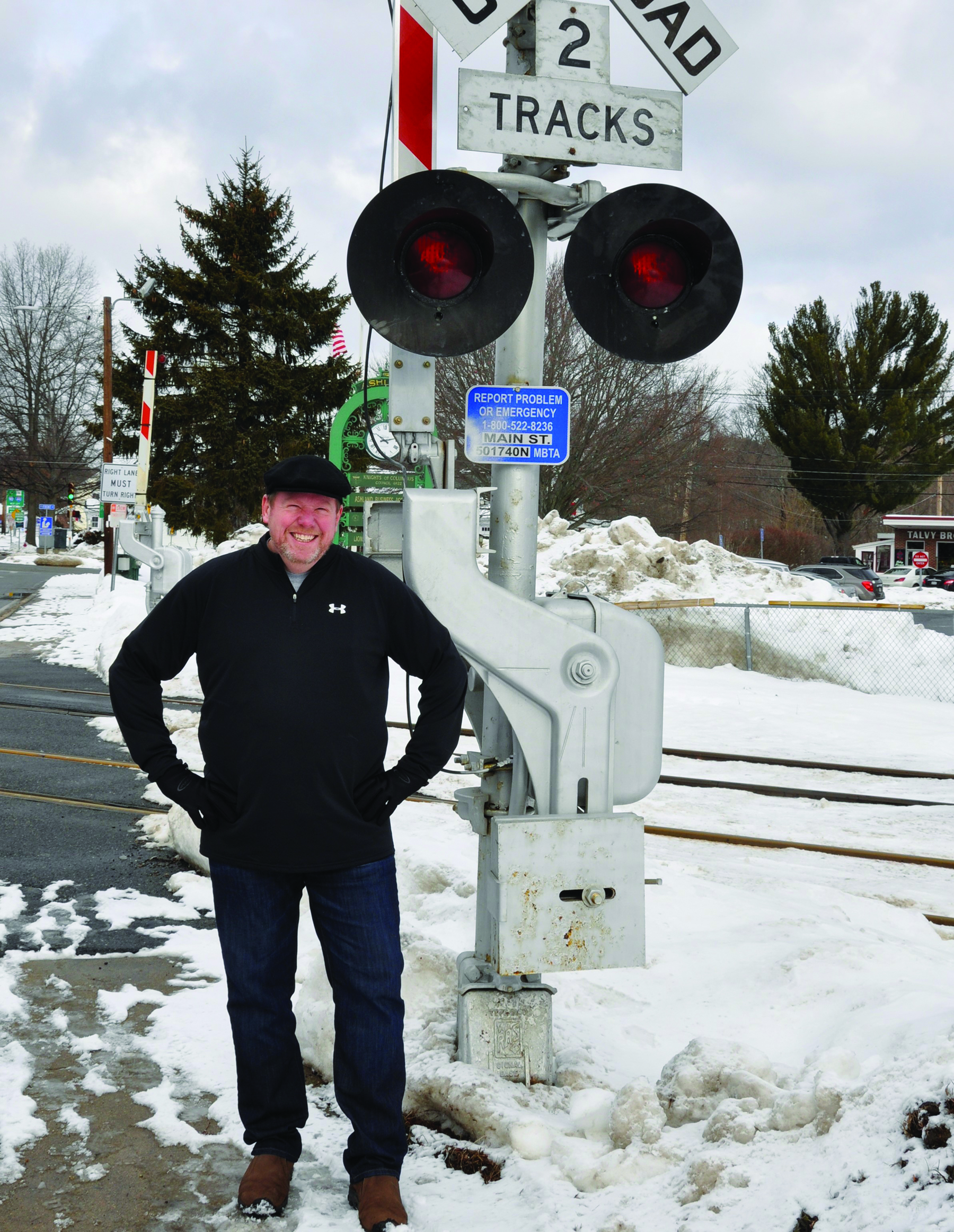The years-old effort to silence the blaring horns of trains passing through downtown Ashland is continuing, as town and state leaders seek funding for the proposed $1.2 million Quiet Zone project.
Thirty-five trains run through town every day. For years, Ashland native Chris Gazard has been an advocate for silencing the trains, especially for those citizens living nearby the rail crossings. Seniors in the Ashland House apartments near the Main Street crossing and others near the downtown complain they have trouble sleeping at night due to regular blasts from passing freight trains and the MBTA’s commuter rail. The state’s purchase of the Allston-to-Boston line from freight giant CSX Corp. will add even more trains.
The role of noise as an environmental pollutant and its impact on health is being increasingly recognized, according to studies by the National Institutes of Health. Noise affects the auditory system, disturbs sleep and impairs cognitive performance. Studies show that disturbed sleep can increase blood pressure and the incidence of stroke, according to the National Institutes of Health.
Quiet Zone Designation
In 1996, Gazard set about to research solutions. He learned about Federal Railroad Administration (FRA) guidelines to establish train whistle quiet zones. Ashland’s quiet zones would keep operators from blowing whistles as they pass the Main and Cherry street rail crossings, unless in the case of an emergency, such as a person or a car on the tracks.
Towns that wish to establish a quiet zone are first required to mitigate the increased risk caused by the absence of sounding a horn. FRA guidelines dictate that towns must implement Supplemental Safety Measures (SSMs) to ensure the continued safety of the crossings in question. SSMs could include additional gate systems, medians, curbs, lights, signals, road markings and other upgrades.
Gazard puts this issue before anyone who can help, including the state, Ashland Board of Selectmen (BOS) and town management.
“Since 2008, I have been working on the local state, and federal levels to secure funding and support for quiet zones in Ashland,” Senator Karen E. Spilka (D-Ashland) said. “I have worked closely with Congressman McGovern, the Massachusetts Department of Transportation Secretary and town leaders to allocate funding for design and construction at these railroad crossings. This project is key for safety, quality of life and economic development in Ashland, and I continue to strongly advocate for its advancement and success.”
In 2010, the BOS held a series of public hearings to hear resident’s thoughts on keeping the noise down at the town’s two at-grade crossings. The Board subsequently voted unanimously to apply to the FRA for two quiet zone designations.
The FRA granted Ashland permission, and the real work began of reviewing the upgrades needed for either rail crossing site to meet quiet zone criteria and securing the necessary funding for those safety updates.
Ashland received a $600,000 federal grant to establish a quiet zone at Cherry Street and make the necessary upgrades, bringing the town one step closer. The Main Street rail crossing is close to being eligible as a quiet zone as it is configured.
Quality of Life, Economic Development
Late last year, Town Manager Michael Herbert submitted initial designs to the Massachusetts Department of Transportation (MassDOT), which resulted in a slight cost increase to the project, from $1 million to $1.2 million.
“Town management is certainly supportive of working to advance and forward this issue,” Herbert said. “The establishment of quiet zones at Main and Cherry streets will be important on several different levels, including our quality of life. We are grateful to Senator Spilka who has always been a champion on this issue for Ashland.”
In mid-February, Senator Spilka met again with MassDOT’s Secretary with the goal of securing the additional monies needed to complete the project.
Herbert plans to have the BOS write a letter of support to the Governor this month and he encourages residents to voice their support of these quiet zones as well.
Gazard will now focus his grassroots efforts on encouraging residents to make their voices heard. Anyone interested should contact him at cgazard@gmail.com.
Jon Fetherston, an early advocate of the train whistle quiet zones, said, “As Chairman of Ashland’s Board of Health, I really want to see this project completed. The train whistle noise is loud and impacts a great many lives and the economic development in our town. I am committed to seeing this project completed. Many thanks to Chris Gazard for bringing new life to this important town issue.”
There are close to 700 quiet zones in communities across the nation. Massachusetts currently has 29 such whistle-free zones, according to the FRA website. Hopefully, soon, Ashland will be added to that list.

Issue Date:
March, 2017
Article Body:
Column:
